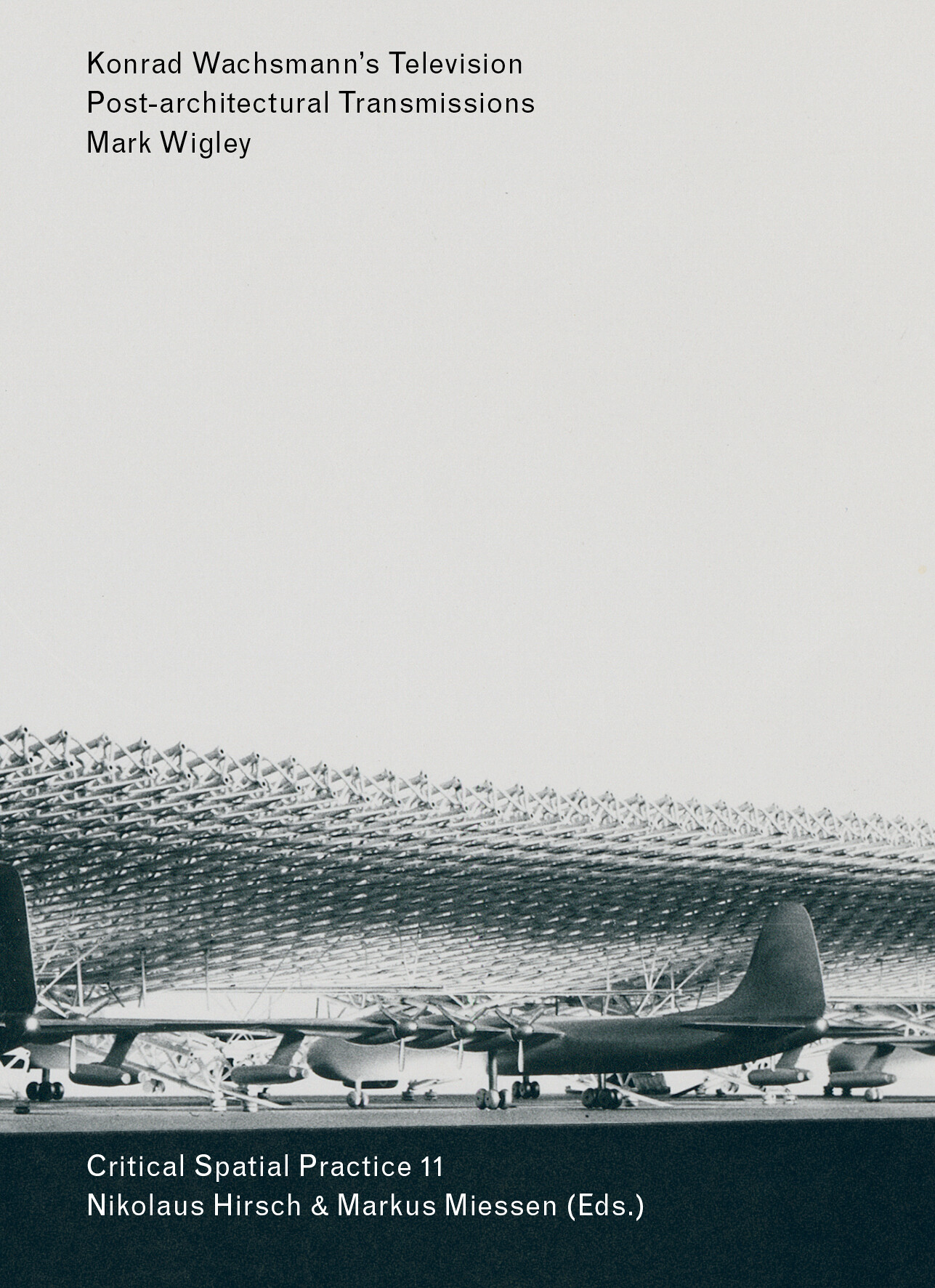Konrad Wachsmann’s Television Week on space-time.tv: December 4–11
Edited by Nikolaus Hirsch and Markus Miessen
Design by Zak Group
With Marianne Burkhalter, Peter Chermayeff, Sam Chermayeff, Phillip Denny, Liz Diller, Simon Denny, Keller Easterling, John Enright, Juan Herreros, Nikolaus Hirsch, Francesca Hughes, Andres Jaque, Lydia Kallipoliti, Silvia Lavin, Niklas Maak, Florian Medicus, Ana Miljački, Christopher Roth, Felicity D. Scott, Deane Simpson, Shannon Starkey, Christian Sumi, Mark Wasiuta, Michael Webb, Mark Wigley and more.
Website takeovers:
Arch+ / Arts of the Working Class / Copenhagen Architecture Film Festival / Architekturgalerie Munich / Sorry Press / Sternberg Press / 2038.xyz
Sternberg Press is pleased to announce the publication of Konrad Wachsmann’s Television, Post-architectural Transmissions by Mark Wigley, the eleventh book in the Critical Spatial Practice series edited by Nikolaus Hirsch and Markus Miessen.
In this provocative intellectual biography, architectural historian Mark Wigley makes the surprising claim that the thinking behind modernist architect Konrad Wachsmann’s legendary projects was dominated by the idea of television. While architecture is typically embarrassed by television, preferring to act as if it never happened, Wachsmann fully embraced it. Investigating the archives of one of the most influential designers of the twentieth century, Wigley scrutinizes Wachsmann’s design, research, and teaching, closely reading a succession of unseen drawings, models, photographs, correspondence, publications, syllabi, reports, and manuscripts to argue that Wachsmann is an anti-architect—a student of some of the most influential designers of the 1920s that dedicated 35 post–Second World War years to the disappearance of architecture.
Wachsmann turned architecture against itself. His hypnotic projects for a new kind of space were organized around the thought that television liberates a different way of living together. Wachsmann dissolved buildings into pulsating mirages that were a huge influence on the experimental avant-gardes of the 1960s and 1970s. But Konrad Wachsmann’s Television: Post-architectural Transmissions demonstrates that this work was even more extreme than the experiments it inspired. The book offers a forensic analysis of a career to show that Wachsmann developed one of the most compelling manifestos of what architecture would need to become in the age of ubiquitous electronics.
Mark Wigley is a professor of architecture at Columbia University. His books include Passing Through Architecture: The 10 Years of Gordon Matta- Clark (Power Station of Art, 2019); Cutting Matta- Clark: The Anarchitecture Investigation (Lars Müller, 2018); Are We Human? Notes on an Archaeology of Design (written with Beatriz Colomina; Lars Müller, 2016); Buckminster Fuller Inc.: Architecture in the Age of Radio (Lars Müller, 2015); Constant’s New Babylon: The Hyper-Architecture of Desire (010 Publishers, 1998); White Walls, Designer Dresses: The Fashioning of Modern Architecture (MIT Press, 1995); and Derrida’s Haunt: The Architecture of Deconstruction (MIT Press, 1993). Wigley has curated exhibitions at the Museum of Modern Art, the Drawing Center, Columbia University, Witte de With Center for Contemporary Art, Het Nieuwe Instituut, and the Canadian Centre for Architecture. Most recently he curated Passing Through Architecture: The 10 Years of Gordon Matta-Clark at the Power Station of Art, Shanghai (2019–20).
For orders, please contact order [at] sternberg-press.com.
For press inquiries and all other concerns, please contact mail [at] sternberg-press.com.

